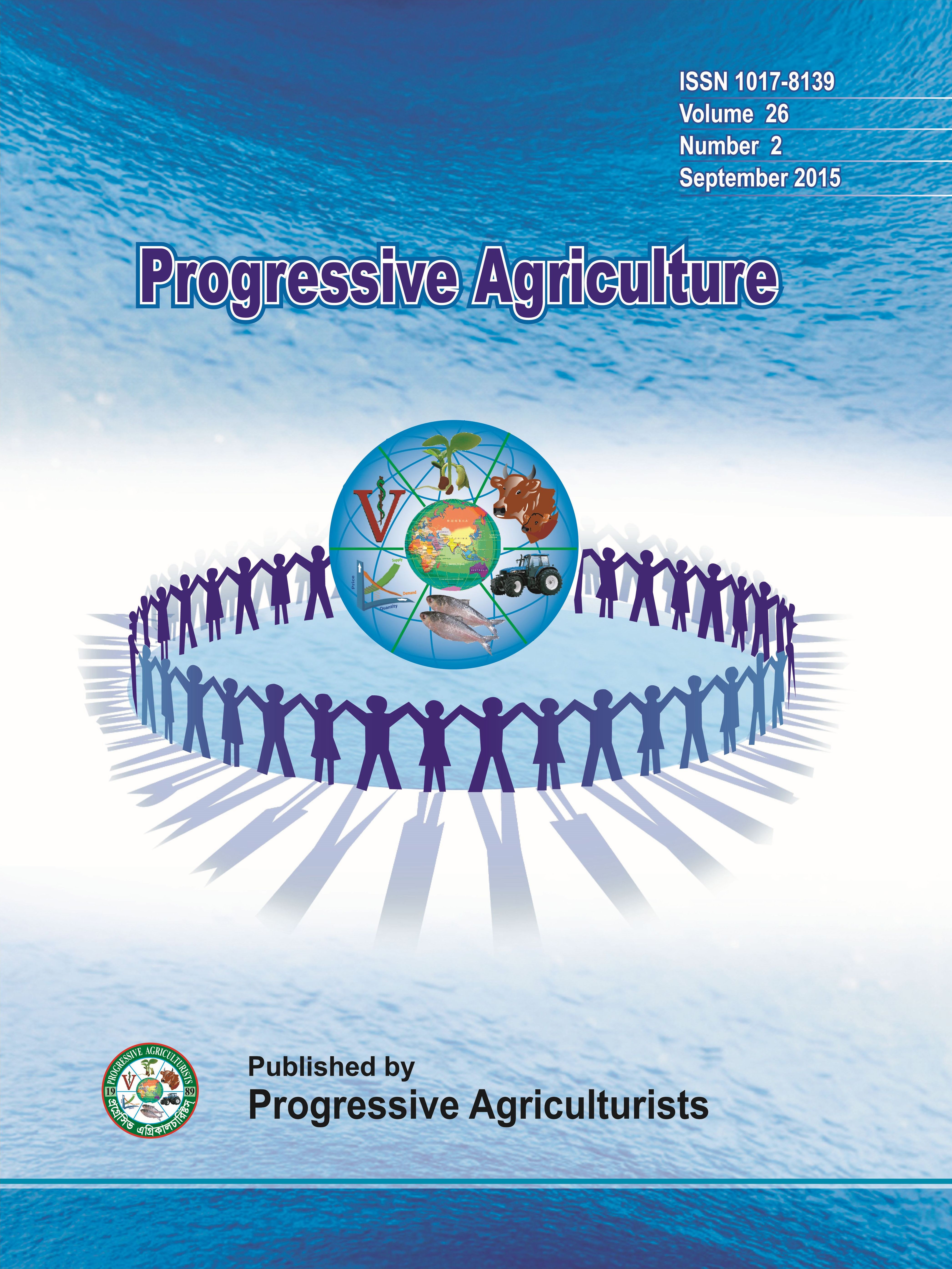Impact of organic wastes on soil environment and yield of T-aman rice
DOI:
https://doi.org/10.3329/pa.v26i2.25966Keywords:
Organic waste, soil environment, nutrients, heavy metal status, rice yieldAbstract
Organic wastes are rich in nutrients that can improve soil fertility and enhance crop yield. A study was conducted at the experimental field of Department of Environmental Science, Bangladesh Agricultural University, Mymensingh during July-December 2014 to examine the effect of different organic wastes on soil quality and rice yield. The experiment was laid out in a randomized complete block design (RCBD) taking five treatments with three replications. The treatments were: T1 (recommended chemical fertilizers), T2 (50% farm waste + 50% poultry manure), T3 (50% poultry manure + 50% municipal solid waste), T4(50% cowdung + 50% farm waste) and T5 (50% farm waste+25% poultry manure +25% cow dung). All wastes were applied at one time after final land preparation and before 15 days of rice (BRRI dhan 49) transplanting. Minimum and maximum soil moisture content was 26.16% and 30.83% recorded at T1 and T2 treatments and that of pH values were 5.26 and 5.93 at T3and T4 treatments, respectively. Incase of soil nutrient content, organic matter, N and S content was highest in T2 treatment and P and K contents were highest in T4 treatment whereas lowest values were observed in T1 treatment. Pb and Cd contents were highest at T5 treatment and lowest at T1 treatment. However, the values of Pb and Cd were below the permissible limit for agricultural soil. The highest grain yield (4.72 t ha-1) was recorded in T4 treatment and the lowest grain yield (3.87 t ha-1) was observed in T1 treatment. Considering crop yield and soil properties, treatment T4 was better compared to other treatments. The present study clearly indicated that the quality of soil and yield increased due to the application of organic waste compared to chemical fertilizer.
Progressive Agriculture 26 (2): 122-128, 2015
Downloads
192
224

